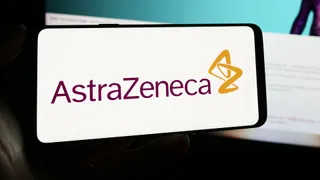Novartis strikes vaccine licensing deal with Indian biopharma
Novartis has signed a development and licensing agreement with Indian biopharmaceutical company Biological E Limited (BioE) to deliver two vaccines that protect against typhoid and paratyphoid fevers.
Under terms of the agreement, pharmaceutical company Novartis will transfer technology to BioE, which will be responsible for the manufacture, further clinical development, approval and distribution of the vaccines in the developing world.
Novartis will retain patent rights to the vaccines in developed countries.
Two patents will be transferred from Novartis to BioE in the deal. The first covers a monovalent typhoid vaccine, and the second covers a vaccine, still in development, which protects against both typhoid and paratyphoid fevers. Rights to the dual-action vaccine will be transferred after a proof of concept has been completed to improve its safety and immunogenicity – the ability to provoke an immune response.
Don Ganem, vice president and global head of infectious diseases at the Novartis Institutes for BioMedical Research, said: “BioE has a proven track record in vaccine manufacture, and capabilities to clinically develop and deliver WHO [World Health Organisation] pre-qualified affordable vaccines to the developing world. We are pleased to be working with them to address this unmet need.”
Ted Bianco, director of technology transfer and acting director of the Wellcome Trust, which is supporting the development of the dual-action vaccine, said: “Typhoid and paratyphoid are major causes of life-threatening disease worldwide and with the emergence of resistance to all of the commonly used antibiotics, they are becoming increasingly difficult to treat.”
“This licensing deal takes us a step closer to getting much-needed affordable vaccines into the communities that need them most,” he added.
According to the WHO, around 22 million cases of typhoid fever are reported worldwide every year, and a statement on Novartis’s website says there are 5 million annual cases of paratyphoid A fever, one type of the disease. Typhoid and paratyphoid are more prevalent in areas without adequate sanitation and access to clean water.
Already registered?
Login to your account
If you don't have a login or your access has expired, you will need to purchase a subscription to gain access to this article, including all our online content.
For more information on individual annual subscriptions for full paid access and corporate subscription options please contact us.
To request a FREE 2-week trial subscription, please signup.
NOTE - this can take up to 48hrs to be approved.
For multi-user price options, or to check if your company has an existing subscription that we can add you to for FREE, please email Adrian Tapping at atapping@newtonmedia.co.uk

